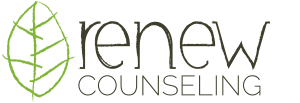In today’s fast-paced and ever-evolving job market, career counseling has become an invaluable resource for individuals at all stages of their professional journeys. Whether you’re a student contemplating future career paths, a mid-career professional seeking a change, or someone returning to the workforce after a hiatus, career counseling can provide the guidance and support needed to make informed decisions. In this article, we’ll explore what career counseling is, its importance, and how it can benefit you.
What is Career Counseling?
Career counseling is a process that helps individuals understand themselves, their careers, and the job market to make informed decisions about their professional lives. It involves working with trained career counselors who provide advice, resources, and strategies to help individuals identify their strengths, interests, values, and skills. Career counseling is not just about finding a job; it’s about finding the right job that aligns with one’s personal and professional goals.
The Importance of Career Counseling
- Self-Discovery: One of the primary benefits of career counseling is the process of self-discovery. Through various assessments and discussions, individuals can gain a clearer understanding of their interests, values, strengths, and weaknesses. This self-awareness is crucial for making career choices that lead to satisfaction and success.
- Informed Decision-Making: Career counselors provide valuable insights into different industries, job roles, and career paths. They help individuals understand the realities of various professions, including required qualifications, potential growth, and job market trends. This information is essential for making informed career decisions.
- Goal Setting and Planning: Setting realistic and achievable career goals is a key component of career counseling. Counselors work with individuals to develop short-term and long-term career plans, providing a roadmap to achieve these goals. This structured approach ensures that individuals stay focused and motivated.
- Skill Development: Career counseling often includes identifying and developing the skills necessary for career advancement. Counselors may recommend additional training, certifications, or educational programs that can enhance an individual’s employability and career prospects.
- Job Search Strategies: Navigating the job market can be challenging, especially with the increasing competition. Career counselors offer practical advice on job search strategies, resume writing, interview preparation, and networking. These strategies can significantly improve the chances of securing the desired job.
- Career Transitions: For those considering a career change, career counseling can be particularly beneficial. Counselors help individuals evaluate their current situation, explore new career options, and develop a transition plan. This support can make the process of changing careers less daunting and more manageable.
The Career Counseling Process
- Initial Assessment: The process typically begins with an initial assessment where the counselor gathers information about the individual’s background, experiences, and current career concerns. This assessment helps in understanding the individual’s unique needs and objectives.
- Self-Exploration: Through various tools and techniques such as personality assessments, interest inventories, and skills evaluations, individuals gain deeper insights into their strengths and preferences. This stage is crucial for aligning career options with personal attributes.
- Career Exploration: Counselors provide information about various career options, including job descriptions, educational requirements, and potential career paths. This exploration helps individuals understand the possibilities and narrow down their choices.
- Goal Setting: Based on the self-exploration and career exploration stages, counselors assist individuals in setting realistic career goals. These goals are specific, measurable, achievable, relevant, and time-bound (SMART).
- Action Plan Development: An action plan outlines the steps needed to achieve the career goals. This plan may include further education, skill development, job search strategies, and timelines. The counselor provides ongoing support and guidance throughout this process.
- Implementation and Follow-Up: The final stage involves implementing the action plan and monitoring progress. Regular follow-up sessions with the counselor ensure that individuals stay on track and make adjustments as needed.
Who Can Benefit from Career Counseling?
- Students: High school and college students can benefit from career counseling by gaining clarity on their career interests and understanding the educational paths required for their desired careers.
- Early Career Professionals: Individuals at the start of their careers can use career counseling to navigate the job market, set career goals, and develop strategies for professional growth.
- Mid-Career Professionals: Those looking to change careers or seeking advancement in their current fields can benefit from career counseling to identify new opportunities and create a transition plan.
- Returning Workforce: Individuals re-entering the workforce after a break can use career counseling to update their skills, rebuild confidence, and find suitable job opportunities.
- Anyone Seeking Career Satisfaction: Ultimately, anyone looking to achieve greater satisfaction and success in their careers can benefit from the insights and guidance provided by career counseling.
Career counseling is a powerful tool that can help individuals at all stages of their professional lives. By providing the necessary guidance, resources, and support, career counselors empower individuals to make informed decisions, set achievable goals, and navigate the complexities of the job market. Whether you’re starting out, seeking a change, or aiming for career advancement, career counseling can be the key to unlocking your full potential and achieving long-term career satisfaction.

